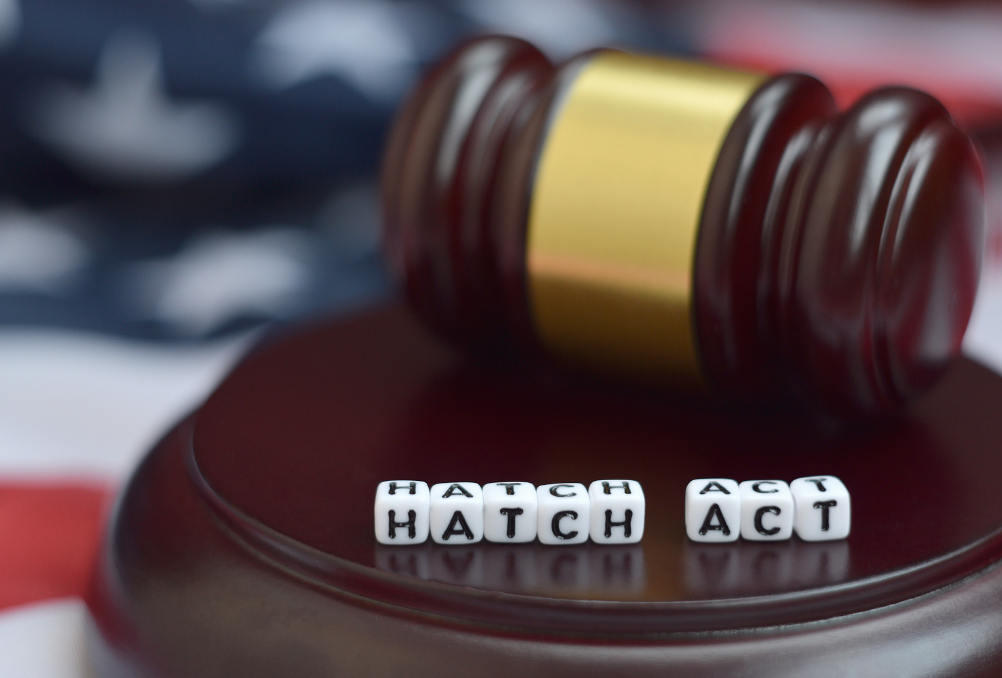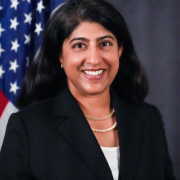It’s Time to Get HIP(AA) to the Hatch Act
By Dan Gephart, August 12, 2024
Quick facts:
- A Federal contractor with no authorization to do so traveled to a conference in Russia to offer the host nation a “peace mission” to Mars.
- A Federal employee who ran for Senate said he didn’t violate the Hatch Act because he was “unaware” of it.
- Special Counsel Hampton Dellinger announced two important updates to OSC enforcement of the Hatch Act.
Remember a few years ago when everybody seemed to be an expert on the Health Insurance Portability and Accountability Act? HIPAA (not HIPPA as those self-anointed authorities often wrote) is the Federal law that protects sensitive patient health information from being disclosed by medical providers without the patient’s knowledge or consent. Too many people seemed to be unaware of the extent of the law.
The most telling example was when a congresswoman was asked at a press conference in 2021 whether she received the COVID-19 vaccine. She replied that the reporter’s question was a “violation” of her HIPAA rights. Now more people know: Not only does HIPAA not prevent reporters from asking elected officials about their vaccination status; it also doesn’t prohibit workplaces from asking the same question.
I sometimes think of the Hatch Act as the HIPAA of election seasons. For a law that impacts so many Federal employees, a lot still fail to grasp its aim or restrictions.
Take for example, the contractor who received permission to virtually attend the Global Space Exploration Conference in Russia in 2021. Singh-Derewa v. NASA, DA-1221-23-0239-W-1 (May 21, 2024)(ID). The contractor attended in person and identified himself as a NASA employee. (Note: To reiterate, he was a contractor — not an employee of NASA, although he once was employed by NASA, nearly 20 years earlier.)
It turns out traveling without proper clearance is a serious violation of Department of State travel requirements. Following a review of the incident, the contractor was suspended, and later terminated. He was also rendered ineligible for rehire.
After attempting to work with another contractor in the same space center, he filed a complaint with the Office of Special Counsel, which included a Hatch Act component. If you’re scratching your head trying to figure out where the Hatch Act would come in, you’re not alone. Here are the details from the MSPB administrative judge’s decision.
[T]he appellant alleged NASA Administrator William Nelson violated the Act when he discouraged the appellant’s attendance at the 2021 GLEX Conference at which the appellant had planned to present a “peace mission” to Mars with Russia to prevent a “democrat war” with that country. Id. at 15, 21-24. The appellant further alleged Nelson had “collaborated with the Biden administration to prevent and discourage participation in ‘political activity’ that may prevent conflict and avert a potential nuclear war.”
As the OSC explained, and the AJ concurred, “even if the appellant’s allegations are true, they did not give rise to a Hatch Act violation because the alleged activity was not directed at the electoral success or failure of a political party.” Id. at 4.
Then there is the VA physician who ran for the Senate. OSC filed a Hatch Act complaint against the physician. His reply? “[B]ecause he was unaware that the Hatch Act prohibited his candidacy, he did not knowingly or willfully violate” it. Special Counsel v. Salekin, CB-1216-18-0004-T-1 (MSPB May 24, 2024).
The VA provided Hatch Act information in new employee orientation, maintained a Hatch Act FAQ page on its website, and sent Hatch Act emails to all employees in 2012 and 2014 – the year the physician tried to run for office. The physician did not open the 2012 email, asserting, “if I thought it was important to read, I would read [it].”
Ignorance, it seems, is no defense against a Hatch Act violation. It cost this want-to-be Senator a $1,000 fine and disbarment from Federal service for five years.
As we head into the election homestretch, it’s not the time to overlook the Hatch Act. You may not take it seriously, but OSC will.
In a recent op-ed piece for Politico, Special Counsel Hampton Dellinger put White House officials on notice that it was closing the “escape hatch.” “[P]rior OSC statements that White House officials cannot face Hatch Act enforcement in the same way other federal civilian employees do are no longer in effect,” Dellinger wrote.
He also noted two important updates to OSC enforcement.
First, we will no longer automatically rule out bringing actions against former government employees. As the MSPB has advised: an “employee’s post-violation resignation does not eliminate the case or controversy between the employee and the Special Counsel concerning whether the employee violated the Hatch Act and, if so, what penalty is warranted.”
Second, the wearing or displaying of items in the workplace related to current political figures should be considered contrary to the Hatch Act regardless of whether it is before or after Election Day. Among the reasons for a blanket prohibition on such items while federal workers are on duty or in their office is the clear connection between political candidates and political parties. OSC has long advised that political party swag (T-shirts, hats, mugs) is banned year-round. It is logical and workable to apply the same rule to individual political figure paraphernalia, particularly items referencing presidential candidates who are, understandably, well-defined in the public’s mind as aligned with specific political parties.
Meanwhile, lawmakers are getting serious about the Hatch Act, too. The list of positions “further restricted” from partisan activity would grow under a new bill to include agency offices of inspectors general. The IGs would join the CIA, NSA, MSPB, OSC itself and more than a dozen other agencies that are held to more stringent standards than most Federal employees. gephart@feltg.com
Related training:
- September 9-13: MSPB Law Week

